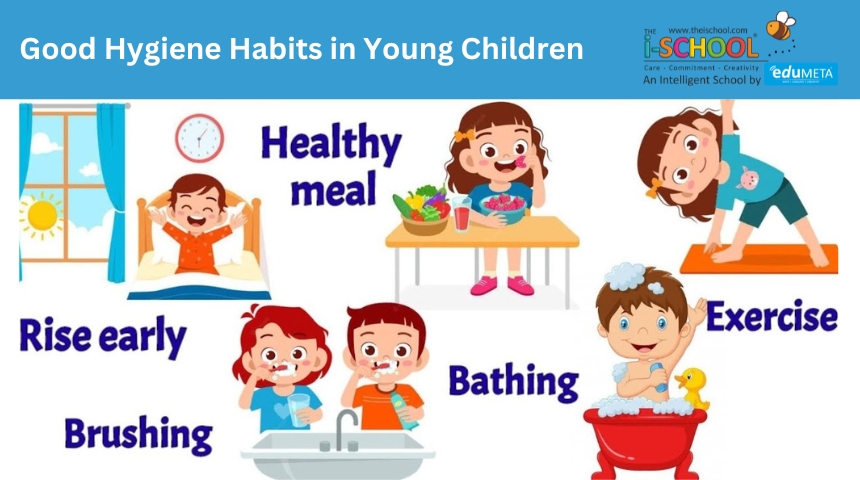Encouraging Good Hygiene Habits in Young Children

Teaching young children good hygiene habits is essential for their health and well-being. Instilling these practices early helps them develop a sense of responsibility and self-care that will benefit them throughout their lives. Here are some effective strategies to encourage good hygiene habits in young children:
1. Make Hygiene Fun and Engaging
Children are more likely to follow hygiene routines if they find them enjoyable. Turn daily hygiene tasks into fun activities by incorporating games, songs, and stories. For instance:
- Handwashing Song: Create a catchy song or rhyme that your child can sing while washing their hands to ensure they wash for the recommended 20 seconds.
- Sticker Charts: Use a sticker chart to track your child’s progress with tasks like brushing teeth and washing hands. Reward them with a small treat or privilege when they reach certain milestones.
2. Be a Positive Role Model
Children learn by observing their parents and caregivers. Demonstrate good hygiene practices consistently and make them a part of your routine. For example:
- Brush Together: Brush your teeth alongside your child to show them the proper technique and make the experience more interactive.
- Handwashing: Wash your hands frequently and emphasize the importance of this habit, especially before meals and after using the bathroom.
3. Create a Routine
Establishing a consistent hygiene routine helps children understand the importance of these practices and makes them feel like a natural part of their day. Include hygiene tasks in your child’s daily schedule:
- Morning Routine: Incorporate brushing teeth, washing the face, and getting dressed into the morning routine.
- Evening Routine: Include brushing teeth, washing hands, and using the toilet before bedtime.
4. Use Visual Aids and Tools
Visual aids can help children understand the importance of good hygiene and remind them of the steps involved. Consider using:
- Picture Charts: Display picture charts that show the steps for handwashing, brushing teeth, and other hygiene routines.
- Fun Tools: Invest in child-friendly hygiene tools, such as colorful toothbrushes, fun soap dispensers, and character-themed washcloths, to make the routines more appealing.
5. Educate Through Stories and Books
Children often learn well through stories and books. Read books that emphasize the importance of good hygiene and illustrate these concepts in a way that is engaging and relatable:
- Hygiene-Themed Books: Look for children’s books that focus on handwashing, brushing teeth, and other hygiene practices.
- Storytelling: Use storytelling to explain why hygiene is important. Create simple, age-appropriate stories that feature characters who learn about the benefits of good hygiene.
6. Offer Choices and Encourage Independence
Allowing children to make choices can foster a sense of ownership and responsibility over their hygiene habits. Offer them options and encourage them to take part in their routines:
- Choice of Products: Let your child choose their own toothbrush, toothpaste, or soap from a selection of child-friendly options.
- Self-Care: Encourage your child to perform hygiene tasks independently as much as possible, offering guidance and support as needed.
7. Praise and Positive Reinforcement
Positive reinforcement is a powerful tool for encouraging good habits. Praise your child’s efforts and achievements in maintaining good hygiene:
- Verbal Praise: Offer praise and encouragement when your child successfully completes a hygiene task, emphasizing their positive behavior.
- Rewards: Implement a reward system, such as earning extra playtime or a small treat, for consistently following hygiene routines.
8. Addressing Resistance and Challenges
It’s common for young children to resist new routines or tasks. If your child is hesitant, try the following strategies:
- Explain the Why: Use simple, age-appropriate explanations about why hygiene is important for their health and well-being.
- Stay Calm and Patient: Approach resistance calmly and patiently, avoiding power struggles. Offer gentle reminders and encouragement.
Conclusion
Encouraging good hygiene habits in young children is crucial for their health and development. By making hygiene routines fun, being a positive role model, establishing a consistent routine, and using educational tools, you can help your child develop healthy habits that will last a lifetime. Remember to offer praise and support, and address any challenges with patience and understanding. With these strategies, you can foster a positive attitude towards hygiene and set the foundation for a lifetime of healthy practices.
